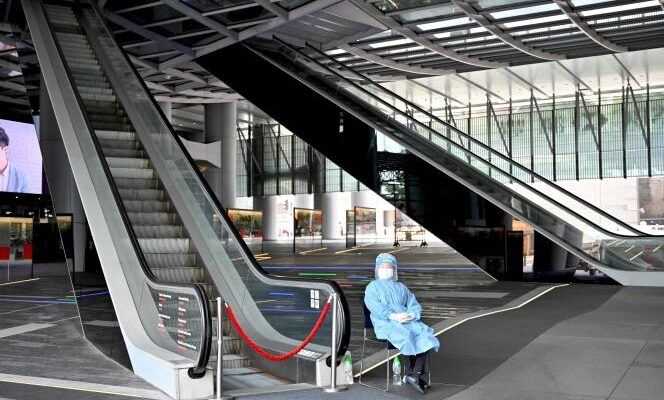A partial relaxation of the many anti-Covid-19 measures in place in Hong Kong has finally been announced before the long Easter weekend, from Friday April 2 to Tuesday April 6, coupled with the Qingming festival of the Chinese calendar. Fifteen of the forty public beaches have been reopened in particular, but under certain conditions (keeping distances between groups, wearing a mask, etc.), as have the swimming pools, but at 30% of their normal occupancy rate and with mandatory identification.
Despite the enormous promiscuity of the 7.5 million inhabitants of the Special Administrative Region of China, the Covid-19 epidemic has affected fewer than 11,500 people and caused 205 deaths since its inception in Hong Kong at the end of January 2020 .
These relatively spectacular results were obtained without confinement but at the cost of drastic measures which have frequently changed: virtual closure of borders, closure (partial and total) of schools, closure or restriction of hours of bars, restaurants and nightclubs, sports clubs, cinemas, theaters, places of worship, beauty salons, but also beaches.
Flights to “very high risk” areas, including the United Kingdom where hundreds of Hong Kongers have found themselves stranded and banned from returning, have been interrupted. All public gatherings were also banned, allowing the government to suspend parliamentary elections for at least a year.
Recently, the police have also carried out impressive instant containment operations, called “Ambush lockdown”, “Containment in ambush”, when a focus of infection is suspected somewhere. The police then suddenly isolate the building or the block from which no one can enter or leave unless several consecutive negative tests etc. The 140 positive cases in Hong Kong currently, mostly healthy carriers, are all hospitalized in isolation.
But it is above all the management of “contact cases” that is considered the most extreme. Because once a new case is identified, the government tries to trace all its contacts, who are then forced to isolate themselves, either in “quarantine camps” or at their expense in designated hotels. It is the phone call or the visit of the health authorities that everyone dreads.
If necessary, in a few minutes the normal life changes and resumes, a few hours later, in mode “locked up for fourteen days” in a room of 11 m2 Spartan comfort, except for those who can afford to stay in one of the hotels authorized by the government to receive “quarantineers”.
You have 65.86% of this article to read. The rest is for subscribers only.
